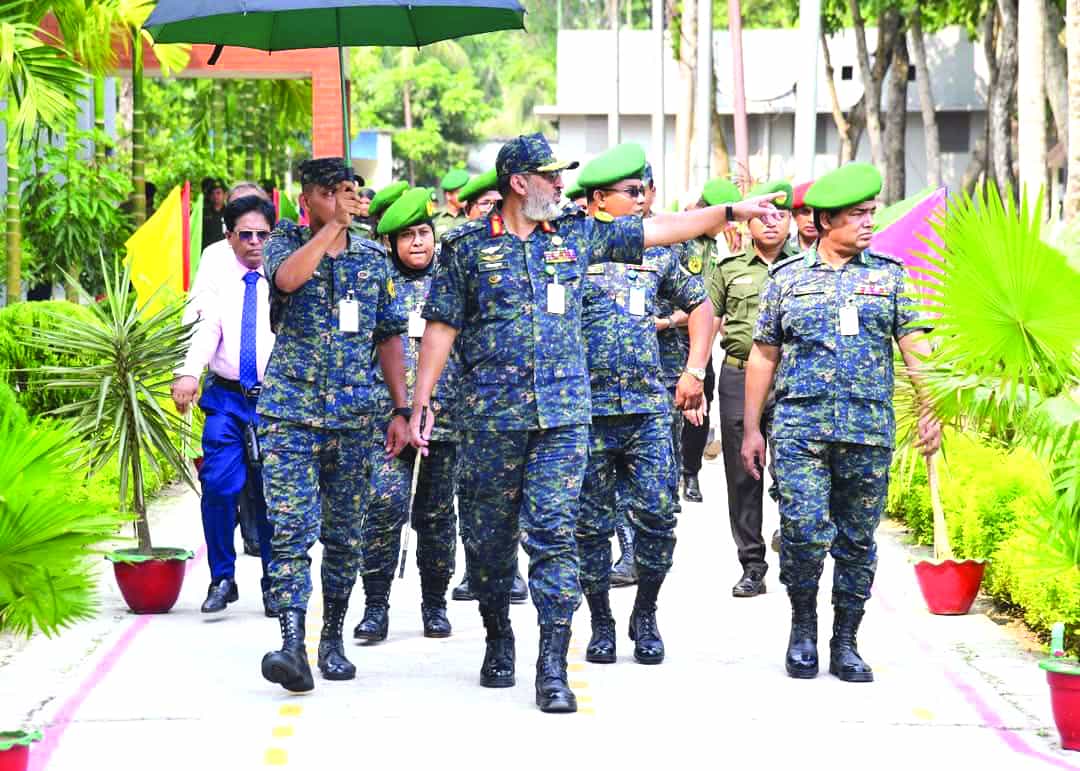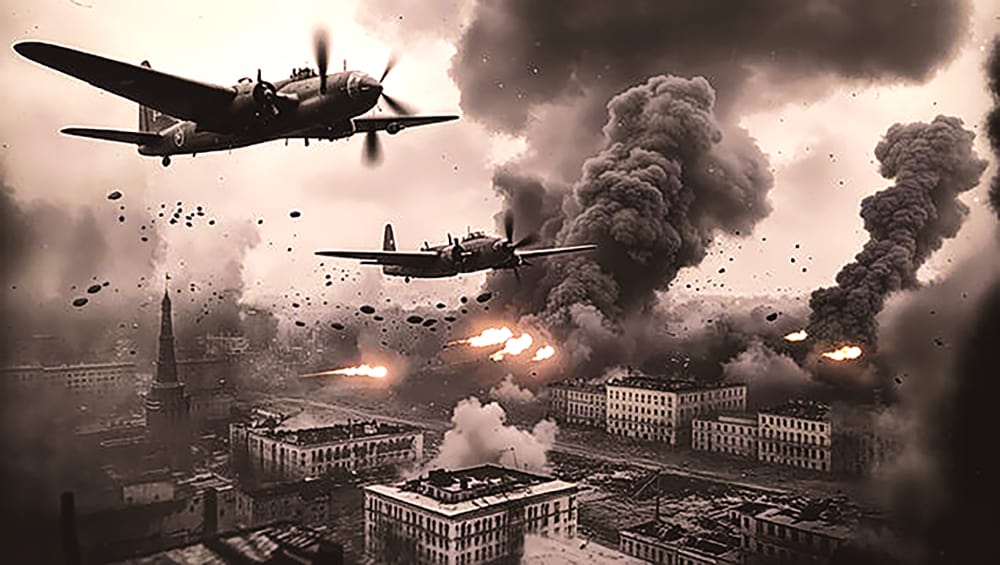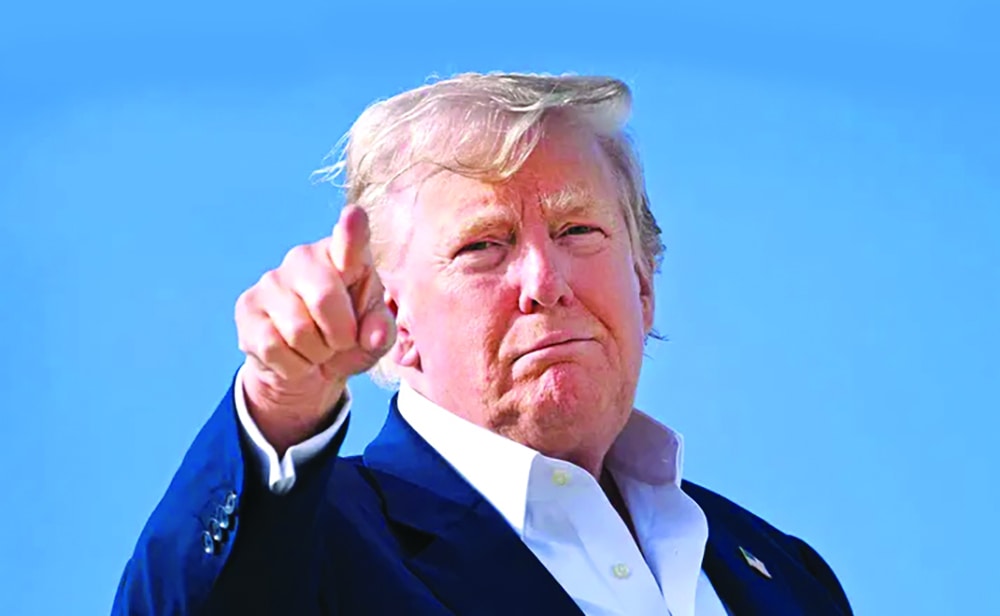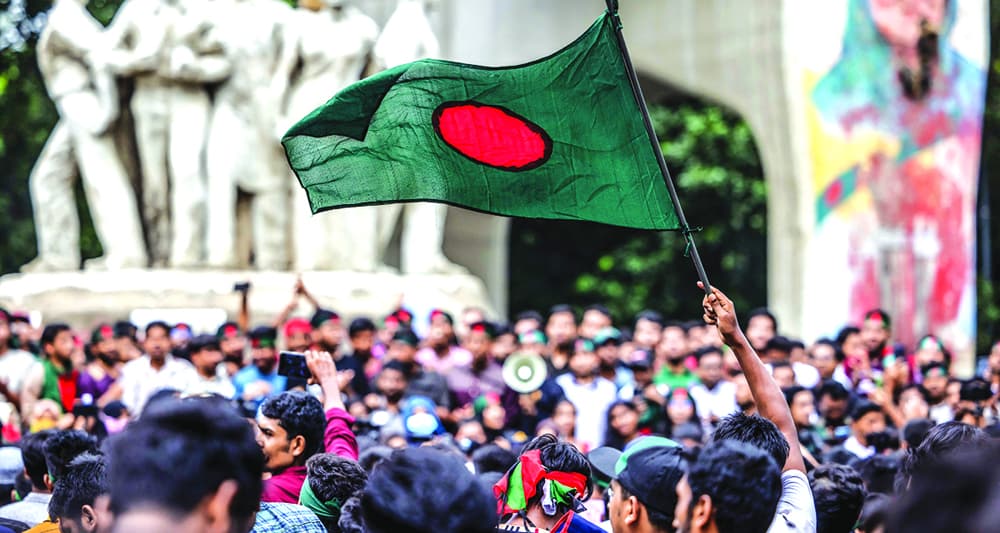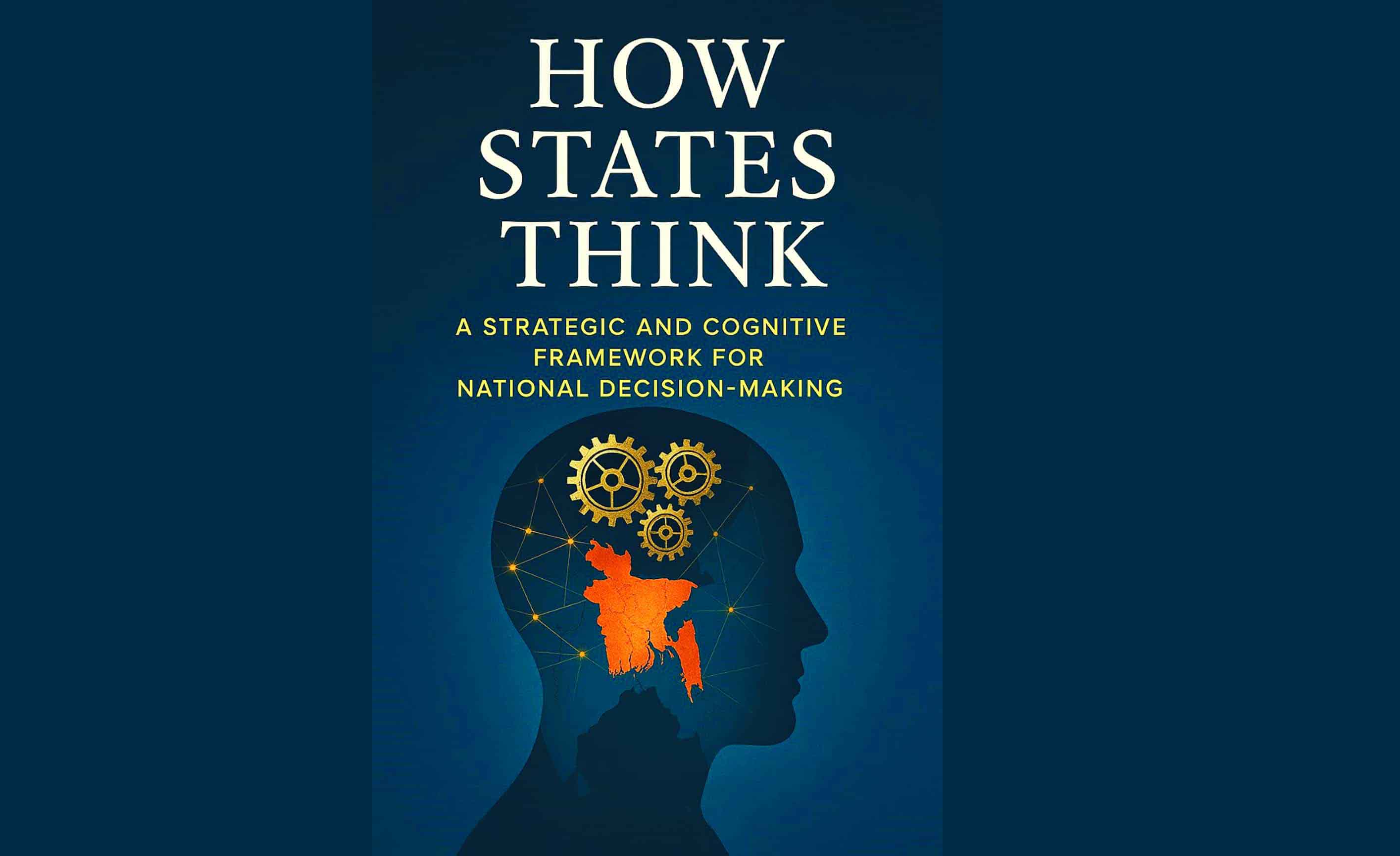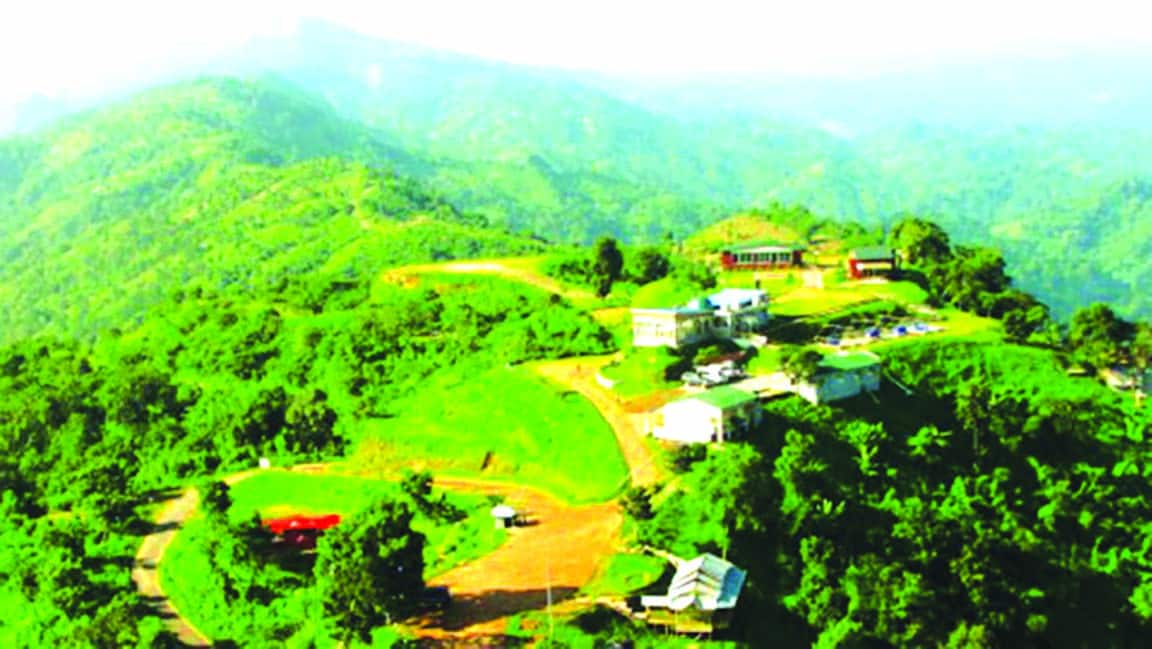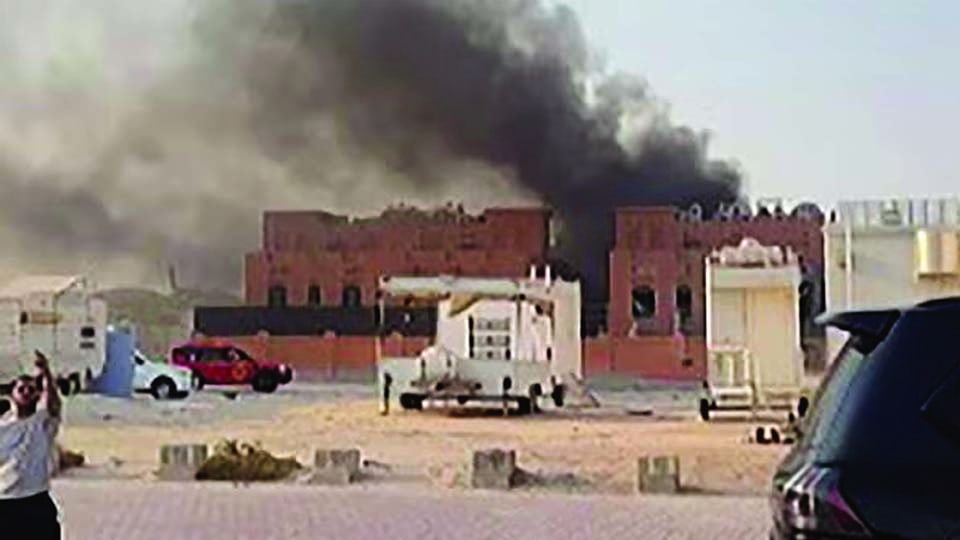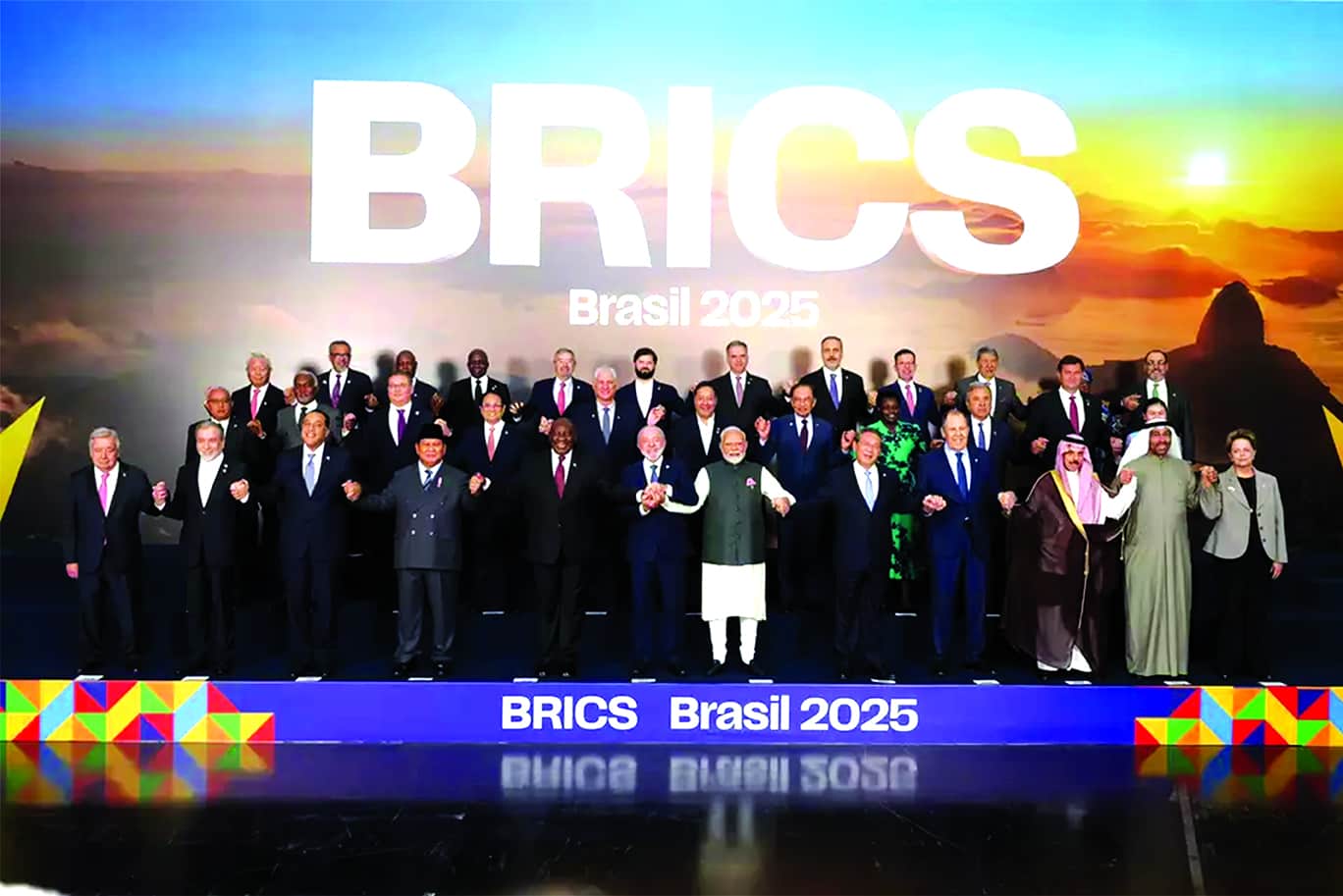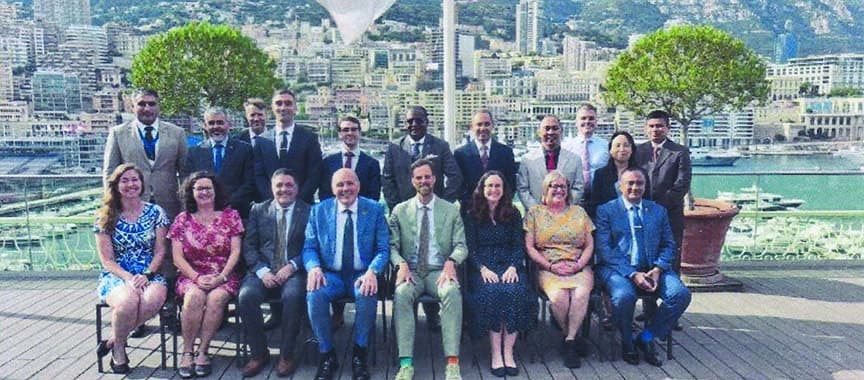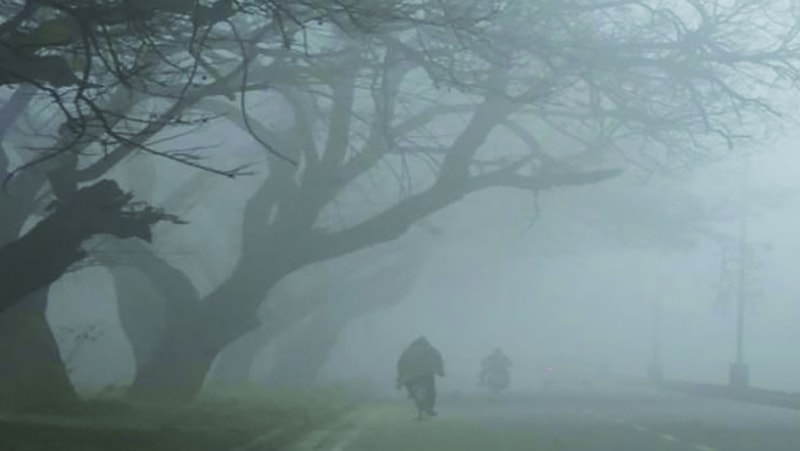Strategising Deterrence for Bangladesh
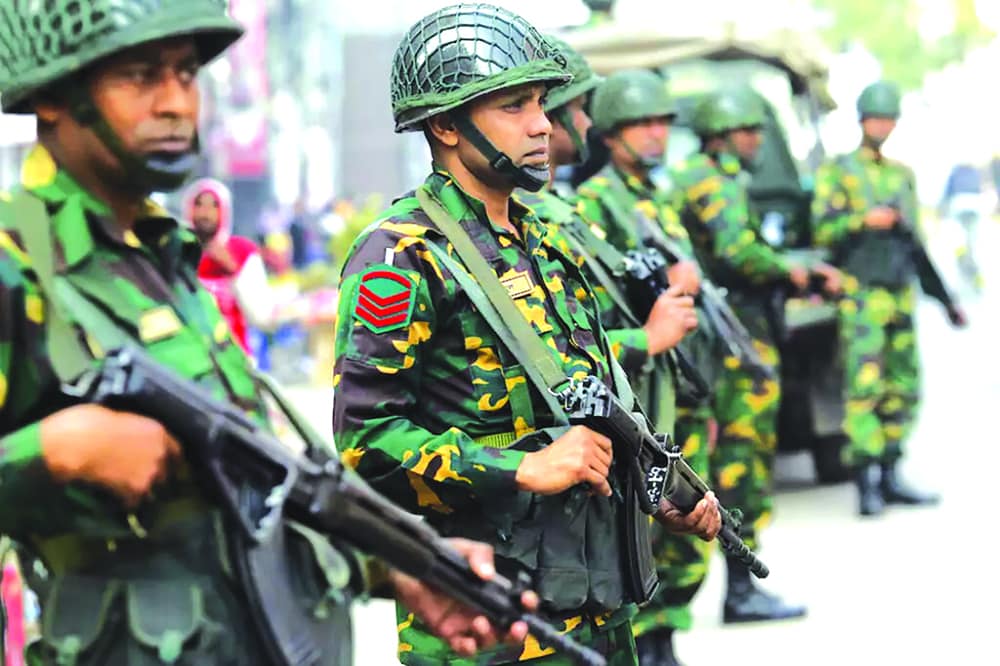
Major General Amsa Amin, ndc, psc, (Retd.)
Is a retired Major General of the Bangladesh Army, a politician and former ambassador
Deterrence is a concept used both in civil justice system and military thoughts. The basic idea is to prevent/ deter some likely actions of a party by instilling fear in them of adverse consequences. It is in this general sense the term is being used in this paper, broadly covering both political and military matters.
July - Aug 24 mass uprising and successful over through of the despotic Hasina regime has been a historic achievement. July reforms are expected to be finalized and implemented soon. The onus lies, possibly with the next government to follow these through and implement fully. Failure can be disastrous. The question remains, however, if the reforms will lead to major transformation of the Bangladesh (BD) polity. Challenges on the way will be daunting. But political will and sincerity of leadership duly supported by their respective parties and people at large, the reforms can succeed. However, there are many if’s and but’s, many uncertainties.
However, the question of reforming Bangladesh (BD) National Security and National Defence institutions so far has remained neglected. It is needless to say that these are vital national sectors. No nation can protect its independence, exercise her sovereign rights and sustain strategic national interests without having substantial military prowess/power. Most strategic thinkers and scholars will agree that BD could have done far better to develop a credible military deterrence; could have built a substantial national security apparatus over the last half a century. It only needed a strong national will to do so, and sound politico - economic management, not just political rhetoric by the leaders.
Of course responsibility squarely lie as much with the governing political elites as with the military leadership. Even the retired leaders could promote and pursue thoughtful ideas. However, in a quasy democracy, particularly under despotic rule, specially over the last few decades or so, BD military got the kind of Leadership that the Presidents and Prime Ministers personally liked. Some were good, some were not. However, there was total disregard to any rule based systemic approach. Personal loyalty, family connection and political subservience to the party in power only mattered. So whatever are the failures the military had was totally due to politicization of the higher echelons of command by the party leader in power. It’s a political failure, and some Military Leaders succumbed to greed and unmilitary like unpatriotic conduct. As a result it became rare to find Military Leadership who were upright, righteous and having moral courage to stand up and say "No" to the Prime Minister, when he or she was found giving unlawful orders. If the leaders were challenged, the military organizations could have been saved from politicization. However, credit must be given to our Generalship and the rank and file who prepared the military well, trained them hard and maintained high standard of military discipline.
So in the UN missions they performed very well and earned global laurels. It proves that basically our military training, discipline and leadership quality is world class. It has also been proven during the historic July-Augus’24 mass upheaval. The military stood by the people and refused to shoot the unarmed civilians. This great lesson must be learnt by the Political Leaders of the future - the military supports the people’s cause and not a government that has lost its legitimacy to rule.
It’s time now for the Interim Government, to work out ways and means to strengthen the military leadership and the defence organization. National Security Strategy (NSS), National Defence Strategy (NDS) and National Military Strategy (NMS) needs to be drafted to set out clear goals and objectives to guide the work of the forces. NSS is a public document prepared by experts, approved by the Government and published. Generally geopolitical, military and economic experts prepare papers under political guidance. These help build national sense of unity and cohesion, morale and national esteem. It helps drive out inferiority complex from the national psychie and build a collective patriotic mindset to defend our territory and sovereignty. It is necessary for all to remember that a "nation goes to war, the military fights as its vanguard". The vanguards pure military professionalism, as such, must be honored and preserved above any party interest.
However, one may argue that such strategic work is not the duty of an interim government. The argument is weak and untenable. This is surely not a caretaker government between two regular governments. This government is the result of a national upheaval fully supported by the people which over threw the last despotic and unlawful power. So it’s a government by popular will and mandate. So this government has all the legitimacy to take policy decisions. However, the performance, capability and efficiency of the government is a different matter.
But the interim government is working out, very arduously for months together to reform some vital, transformational political matters. Unfortunately, National Security and Defence matters have been left unreformed. There are five months still left and a Military Commission can be set up right away with clear terms of reference and time line. A capable team can, within this time, workout detail proposals to address; at least address the political problems the institutions faced, and many face again. The Constitutionality may not be a bar and Presidential Executive Order can implement the reforms. Based on our past experience, it can be said that most politicians do not understand intricacies of National Security and Defence and how these organization are to be handled. They only have vague ideas. So a reasonable comment is that it’s too serious a matter to be left only to the politicians. Because they never did anything over the last half a century and more to strengthen our military power, professionalism and discipline. Lacking know ledge and understanding they suffered from politico-military phobia. But this government is uniquely placed, not being party-political to help build an all party consensus in military matters so that no politicization of the military is ever attempted again by any party in future. Legislation is needed also to protect the military leadership from the wrath of the political leaders when a General protests political wrong doings. Few years back in USA the Chairman of the Joint Chiefs of Staff and 4 other Services Chiefs protested in writing against President Trump in his last term when he asked the military to interfere in the election process. Written anti-President statement signed by the 5 top Generals and Admirals were published in the media. This is how US military upheld democracy. We can do so as well. It needs only moral courage.
Bangladesh-Made Missile Drone
Some of the immediate and actionable issues that are essential and need prompt attention are enumerated below:
a. Employing a Defence Minister / Advisor: It’s unfortunate that such a vital and critical ministry has been left void, without a full time leader over the last 54 years. Nowhere in the world there is such an example where national security and defence is treated as a side job of Presidents or Prime Ministers. We became independent by fighting the liberation war. Thereafter, a military-phobic and idiotic idea floated in the political circles that Bangladesh needs no military force. The idea lost ground and ultimately the military organization did grow. But the Prime Ministers / Presidents always thought of keeping it under their personal control. The Chief Advisor can make a good start by appointing a pragmatic and professional full time Defence Advisor who should direct / involve in the military affairs. A Military Commission can be created to ensure that no future government tries to undermine military professionalism and military discipline. The Advisor can directly guide the work of the proposed Defence Commission and ensure a good environment for Military justice and discipline.
b. National Security Council (NSC): Many of us have been talking about it and writing about the importance of a fully functioning NSC. National Defence College, Mirpur has many studies about all aspects of it. The Interim Government has appointed a National Security Advisor (NSA). National security cannot be a one man show. It’s a multidisciplinary subject and as such needs a few departments, research activities and a full scale organization with necessary departments. NSA now must be seen to work on security matters, not just trade and tariff. Effective functioning of NSC can play a vital role at this critical juncture of Indian governmental unfriendly acts and BD-Pak-China relations. He can work to activate SAARC now. They must provide policy and international relations management support. The interim government and the people need to see their work. They can help and activate the university IR departments and the Think Tanks for public discourse.
c. Armed Forces Division: It has practically become redundant since head of the government cannot give enough time and attention. It should be reformed and not kept as part of the Chief Advisers / Prime Minister’s Office. Instead it should be part of the Ministry of Defence. It can be enlarged so every service can be well represented at higher level. It should attend to ensure Military Justice, develop Defence industries and Technology and create strong basis for Defence Economics. Defence Intelligence Agencies work can be directed and coordinated by distinct department of this Division. Functioning of the Ministry of Defence also needs to be re-organized and made functional.
d. Higher Defence Organization: Bangladesh forces have grown to a pretty large size. Military Strategy has become a vital subject needing close attention due to geo-politics of today, air / space / cyber warfare maritime defence of the Bay of Bengal. Now we also are seeing a new surge of patriotic and nationalistic spirit in BD. The July 24 mass uprising has generated strong resentment against any foreign hegemony or domination. There is a need for enlarging the defence forces structure and modernizing it to cater for future battle field needs, joint operations and building credible deterrence. Missile, drone and cyber warfare systems have to be developed, professionally. To organize all these it has become essential to set up a Joint Chiefs of Staff Headquarter and appointing a 4 star Chairman of the Joint Chiefs of Staff. This new Headquarter can start now as a small body and gradually grow with time.
e. NRYF: Establishing a National Reserve and Youth Force (NRYF) or call it by any name is a vital need to enhance national defence capability. Laws can be created and 5 years post retirement reserve liability can be enacted for all ranks of the 3 services. In addition a Youth Force can be affiliated with the military from amongst the Students and Youth on a voluntary basis, making it much more effective than Ansars. Many models are available around the world. National Defence College can be tasked to set up a research programme and propose actionable project which can be developed phase wise.
f. Corps of Intelligence: Bangladesh has no dedicated intelligence service and been an easy victim of hostile intelligence, for a long time. Literally there was no counter intelligence. Our agencies, reportedly have been largely controlled by a Foreign Agency. It’s no secret that during the last 15 years our intelligence apparatus worked hand in hand or under the instruction of a foreign intelligence agency. As a result our national interest has been compromised and the Intelligence system has been literally rendered ineffective. The political masters used them for their personal and political purpose only to perpetuate their power, to control national elections, sale nominations and manipulate election results. No one blew any whistle. Abductions, confinements, tortures and killings by our agencies and others, now coming to light, are simply unlawful, inhuman, cruel and brutal acts. Sadly it speaks of total moral degeneration of our officials involved. It’s time to make the political and professional Leaders, who were in power over these decades to answer for / account for their misdeeds. The subservient governments, its clear did not want to develop any professional, moral and ethical intelligence community, to serve Bangladesh national interest. To rectify all these follies there is an urgent need to develop a professional Corps of Intelligence. It is not an exaggeration to say that national and military intelligence has been handled in an amateurish way. There are no career intelligence officers. Military and Police officers, are posted on deputation. They generally undergo some short training courses. After 3 or so years they are posted back to their parent organizations. No one in Bangladesh has thought of creating intelligence agencies comparable to British MI-6, or CIA or India’s RAW. The Interim Government would do well if the Chief Advisor immediately set up an Intelligence Commission to frame Laws, Rules, Instructions and Accountability system and create a Corps of Intelligence. It is also necessary to build checks and balances to ensure that none can abuse this organization. They can have departments for geo-political research as well. Their in-depth work can help both the Ministries of Defence and Foreign Affairs to formulate defence and foreign policies based on sound information and deeper knowledge. In fact these professional intelligence bodies can involve / employ research scholars from the academic and military universities and the think tanks. They can help create country specialists like Indo-logists, Sino Logists and so on, and promote trackz diplomatic / intelligence research utilizing / promoting think tank culture.
g. Develop Strategic Defence and Deterrence Power: "Military Deterrence theory is a strategy where one party uses the threat of reprisal to prevent an adversary from committing coercion or aggression." However the deterrent power has to be credible. Strategic importance of BD in South Asia is growing including in the larger region of the Asia-Pacific. Bay of Bengal and the Indian Ocean are a critical area. Bangladesh needs to build and hold its position amidst complex military and geo-political equations, both regionally and globally, involving USA, India, China, and Russia. GCC making NATO like treaty and Pak-Saudi Defence Agreements can help Bangladesh interests. Recent Indian Prime Minister’s demarche in Tianjin SCO (Shanghai Cooperation Organization) Summit (August 31- September 01, 2025) is a stark reminder of how volatile can geopolitics be in our region. Of course no one can be certain about how long developments like "Chindia" (Chine - India) relationship will last. But it’s the right time to activate SAARC. Question like when and if India will go back to USA cannot be answered now. But certainly Chindia has embittered US - India relations. Tariff may rise and fall, but surely Russia - India oil trade and BRICS challenging dollar domination globally will remain a sore point. Pakistan however seems to be effectively balancing its relations with both the US and China so far. To pursue legitimate national interests Bangladesh can no longer over look the need to build an effective and credible foreign policy, duly supported by military posture. Failure in Myanmar bears out our follies. There are three nuclear powers around BD. Recent Indo - Pak air battle also sparked worries of nuclear escalation. As such Nuclear Umbrella is now an essential need for BD. The Military Leadership needs to fully focus on and start searching for an alternative arrangement. There may be a diplomatic price to
pay. Military should no longer waste time and money on civilian commercial enterprises. Commercial deviation is surely detrimental to military purposes in many ways. We may suggest employment of only retired personnel in Commercial projects of the military. This will also prevent commercial - profit seeking attitude taking hold of the serving military mind and damage the image of the services.
h. Defence Budget & Management: So far this paper has been focusing on matters mostly military. But nothing will be possible if corruption ridden and crime infested political culture and subservient foreign policy is not transformed and powerful economic growth is ensured. Sadly over the last half a century, BD totally failed in this regard. Instead, foreign hegemonic power got hold of internal affairs of BD. The economy remained fragile and weak. To build strong national security architecture and deterrent power, the pre-requisite is to develop strong economy so it can pay for it. It’s not just the matter of increasing defence budget, it also is a matter of proper utilization. There's been a bias of designing and beautification and corruption. A change of attitude is needed and ensuring that every penny is used for military hard ware to make the best of what our small economy can support.
In conclusion, it can be said that many East and Asia - Pacific third world countries like ours have made great strides, both in politics, economics and military fields. BD has a lot to learn say, from Singapore. They had small Land mass, no resources, not even manpower. Yet their per capita GDP increased from USD 500/- to USD 50,000/- in just about 50 or so years. Our fragile GDP stands, in 2024, at about USD 2600/- in about the same time. We all know the reason. Why are we failing, time and again, to construct an ethics and values based, accountable and pragmatic political and economic culture? Why a strong anti- corruption regime in political, businesses and services eco-system could not be built? The answer is simple - the Leadership had mostly been mediocre with little foresight. The political parties never practiced democracy and accountability. Most people in politics were greedy money mongers. Pragmatic men of character shunned politics. Now is the time for the honest people to shake off their prejudiced view of politics and join in which ever brand they like. Lee Kuan Yew, the master builder of Singapore is on record saying - "get our ablest and the best into politics". BD needs her bests in Politics.
Post July’24 mass upheaval provided a truly golden opportunity to bring about revolutionary changes. Over a year has passed since then, but no seed for transformation could yet be sown into the body-politic as yet. Whereas there was massive popular support for drastic reforms. Routine conventional thinking, lacking boldness, despite strong popular support, has caused this failure. Developing BD Economy and politics and strengthening Sovereignty, Security and Defence of Bangladesh only needs, like Singapore, pragmatic leadership with strong sense of patriotism, with high moral, ethical and political values. Such Leadership needs to construct a powerful anti-corruption regime within our body-politic and Administrative Structures. It is the need of the hour. People enmass, some polls suggest, 70% or more are reedy for bold changes. Probably, vital time has been lost, and the future now lies squarely with the political parties and the leaders vying for power in the next election. They will do well by not forgetting that "power corrupts, and absolute power corrupts absolutely". They must also learn the greatest lesson of the July 24 revolution - people will again deter the likes of Sheikh Hasina and her party if new power repeats corrupt and heinous rule. Regardless of what the books say, and whatever the politicized Civil - Military - Business complex do, people will rise again. The lesson is clear - politicize national institutions, commit injustice, the people will drive any one out of power. July 24 has created the greatest lesson of Masses Political Deterrence against power mongering. One can disregard it to ones peril.






